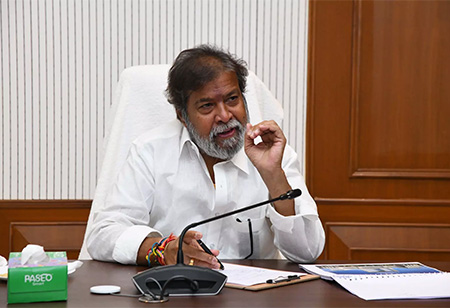
Restrictions on the pharmaceutical industry are growing as Telangana government Health Minister Damodar Rajanarsimha instructed the Drugs Control Administration (DCA) to strengthen its effort against counterfeit, banned, and substandard medicines.
During a review meeting with the Drugs Controller, Deputy Drugs Controller, and other officials on Wednesday (30th August), Rajanarsimha asked officials to arrest offenders and book them under the PD Act, warning that companies that do not comply with regulations may be shut down permanently.
According to the DCA, the regulator conducted 25,939 inspections during FY 2024-25 and took enforcement action against 4,142 institutions. Between January and July 2025, the regulator conducted 16,481 inspections and registered 2,827 violators.
The regulator has stepped up drug quality testing as well. The regulator analyzed 7,200 samples during the latter part of FY 2024-25, of which 186 were declared to be substandard and almost 700 cases were filed against non-compliant entities.
The Minister also emphasized the industry's responsibility to protect the health of patients and that they must not be negligent when it comes to medicines and how they are manufactured or distributed.
He specifically slung mud at pharma companies, distributors, and retailers selling spurious drugs, misleading advertisements, and antibiotics without prescriptions, and has also warned against companies disguising medicines as food products or food supplements with strict action against these companies.
Also Read: India's Auto Industry Aims for Global No:1 Position by 2030, Says Gadkari
To strengthen regulatory capability, the minister instructed officers to hasten the upgrade of drug testing labs and announced the formation of new drug inspector positions ultimately strengthening DCA's oversight structure.
"The government will be strict on maintaining quality medicines and safe food to the people," Rajanarsimha mentioned pointing to a shift in policy direction to more stringent compliance and discipline in the marketplace.
This represents increased vigilance on the part of the Indian pharmaceutical ecosystem and regulators are expected to maintain stricter policing and accountability across the supply line.
We use cookies to ensure you get the best experience on our website. Read more...